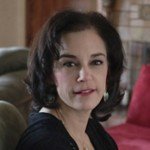Crime Time
Episode 166
Why Zak Ebrahim Chose Not to Follow His Terrorist Father’s Radical and Violent Ways
Author and activist Zak Ebrahim gives a fascinating account of growing up in the shadow of his radicalized Islamic father, El-Sayyid Nosair, whose extremist beliefs moved beyond the household to fuel major terrorist activities.
Ebrahim who was only seven years old when his father shot and killed the leader of the Jewish Defense League (JDL), Rabbi Meir Kahane, in a New York City hotel in 1990. Nosair was convicted on terrorism charges of conspiring in the 1993 bombing of the World Trade Center that killed six people and injured many more.
He recalls that his mother learned of the shooting incident during a live television break-in that also explained that the shooter had been wounded in an exchange of gunfire and neither of the men was expected to survive.
“They cut to a clip of my father laying in a pool of blood, and that was essentially my mother’s first introduction into this radical ideology that my father had been following,” said Ebrahim, who writes about his experiences in the book The Terrorist’s Son: A Story of Choice.
After recuperating from his wounds, Ebrahim said his father was then to Riker’s Island prison, which he visited with his mother a short time later to see him. “Her (his mother) main concern was finding out from him whether he accepted guilt for his action or if he was claiming his innocence – at the time he claimed his innocence – and she believed him.”
When asked why his father – a devout and radicalized Muslim – would choose prominent Jewish lawyer William Kunstler to represent him, Ebrahim explained that Kunstler was chosen for his legal skills and commitment to seeing that every defendant deserved a fair trial. In the end, Kunstler convinced the jury that he was innocent in the shooting death of Rabbi Kahane, and he was ultimately acquitted of the crime.
Ebrahim addresses being brought up hearing his father’s radicalized views and attending gatherings with others who shared his extreme views. “We spent many nights at the mosque, with these men, and listening to them, discussing politics, and the Israeli-Palestinian conflict, and all sort of different topics that fomented the emotions of the men there.”
“My father basically did what many people who become fanaticized do, they try to isolate you and convince you that anyone who isn’t like yourself is evil and a potential threat. So I grew up harboring negative stereotypes about pretty much any person who wasn’t just like me.”
He explains that even though his father was found not guilty of murdering of Kahane, the organization he led, the JDL, was considered a terrorist organization itself. So he justified his father’s killing in his own mind as resulting in a bad man being killed.
“After the World Trade Center bombing – and innocent people were not only being attacked, but were killed – there was no longer that excuse to hold onto… And even later in life, I realized that the excuse of trying to use violence to attack a man like Kahane only made the situation worse and that that sort of violence only perpetuates the problem.”
He recounts that on the day of the World Trade Center bombing in 1993, he was home from school and heard about the attack on television. Terrorism was not immediately suspected and it wasn’t until months later that his father’s involvement in the plot became clear.
“For me, it wasn’t this singular moment, there were many small experience I had that eventually made me realize that what my father believed was not only irrational, it was unfair and it was wrong,” he said. “There is no amount of violence that we can use to solce these problems, it’s not about taking out people we disagree with, it’s about trying to find a way to coexist with each other whether we agree with one another’s viewpoints on the world or not.”
Watch the full interview for more details about Ebrahim’s unusual upbringing, as well as to hear about the current relationship he has with his father.

Comments